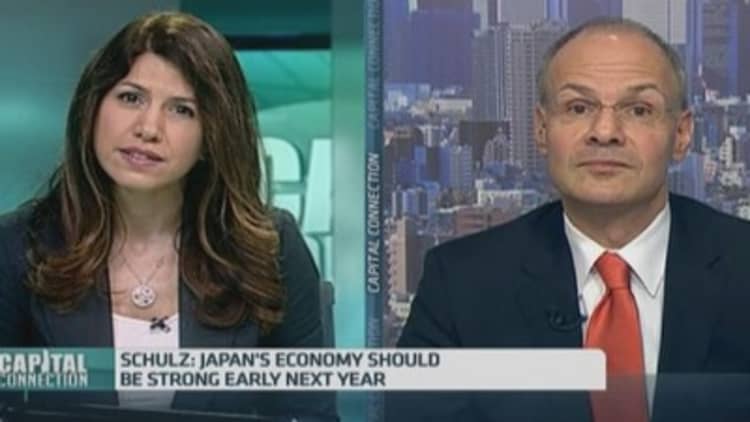Majority of Japanese companies appear unwilling to spend, latest government data showed on Wednesday, adding to doubts over the economy's ability to recover amid slowing growth across the world, particularly in China.
Core machinery orders, a leading indicator of capex spending, grew 1.3 percent on-month in November, a reversal from October's 6.4 percent decline, but well below expectations for a 5.0 percent rise in a Reuters poll.
Year-on-year, machinery orders dropped 14.6 percent, below the Reuters poll estimate of a 5.8 percent decline. At the same time, the Cabinet Office cut its assessment of machinery orders, citing signs that the economic recovery is stalling, Reuters reported.
"Many Japanese corporations don't want to invest because they don't think they can make any money in Japan," said Taro Saito, director of economic research at NLI Research Institute. "The trend to hoard cash rather than invest is not good for the wider Japanese economy."

Still, he reckons capital spending is on a modest recovery trend now that the second consumption tax hike initially scheduled for October 2015 was shelved until April 2017. The first hike from 5 percent to 8 percent in April 2014 was too brutal, he said.
Japan's economy contracted in the two quarters following April's tax hike, tipping the country into a technical recession.
Mild rebound ahead
Many analysts anticipate a modest recovery or rebound in capital investment following the tax hike shock.
"The rebound in machinery orders in November was weaker than expected, and business investment may have been little changed last quarter. Rising capacity shortages, however, suggest that corporate capital spending will soon start to recover," said Capital Economics' Marcel Thieliant in a note.
Read MoreWeak yen last straw for small Japanese firms
"Exports should pick up (as well), given the yen has fallen by 30 percent in trade weighted terms. We think that will eventually feed into business investment despite the somewhat weak numbers today in machinery orders," Randall Jones, head of the Japan/Korea desk at the Organization of Economic Corporation and Development told CNBC.
Businesses surveyed in the Bank of Japan's most recent quarterly Tankan survey in December said they intended to increase investments by 5.5 percent in the year ending in March 2015, according to NLI's Saito. Manufacturers planned to increase capital expenditure by 12.2 percent on-year, although he conceded some have shelved their plans in the face of weak economic growth. According to the latest Tankan survey, firms' capacity utilization is the highest since 2007. On past form, this is consistent with strong increases in business investment," according to the Capital Economics note.
Headwinds abound
"A steeper-than-expected fall off in overseas demand for machinery orders is a negative risk - most worrying is an unexpected weakness in car production," said Harumi Taguchi, Principal Economist at IHS Economics. She expects Japan machinery orders to remain weak until the end of the current fiscal year in March 2015, weighed by slowing growth across the world, particularly in China.
Overseas demand fell by 6 percent on-month in November, after logging declines of 4.6 percent in October and 9.4 percent in September – the industry forecast was for growth of 8 percent in the fourth quarter of 2014, according to Taguchi.
"And domestic demand remains so weak that capital investments in real estate and telecommunications show little sign of recovering," she said.
While Japan is expected to stumble out the current recession, the next 2 percent tax increase scheduled for April 2017 could yet turn the economy to the worse again, warned NLI's Saito.

